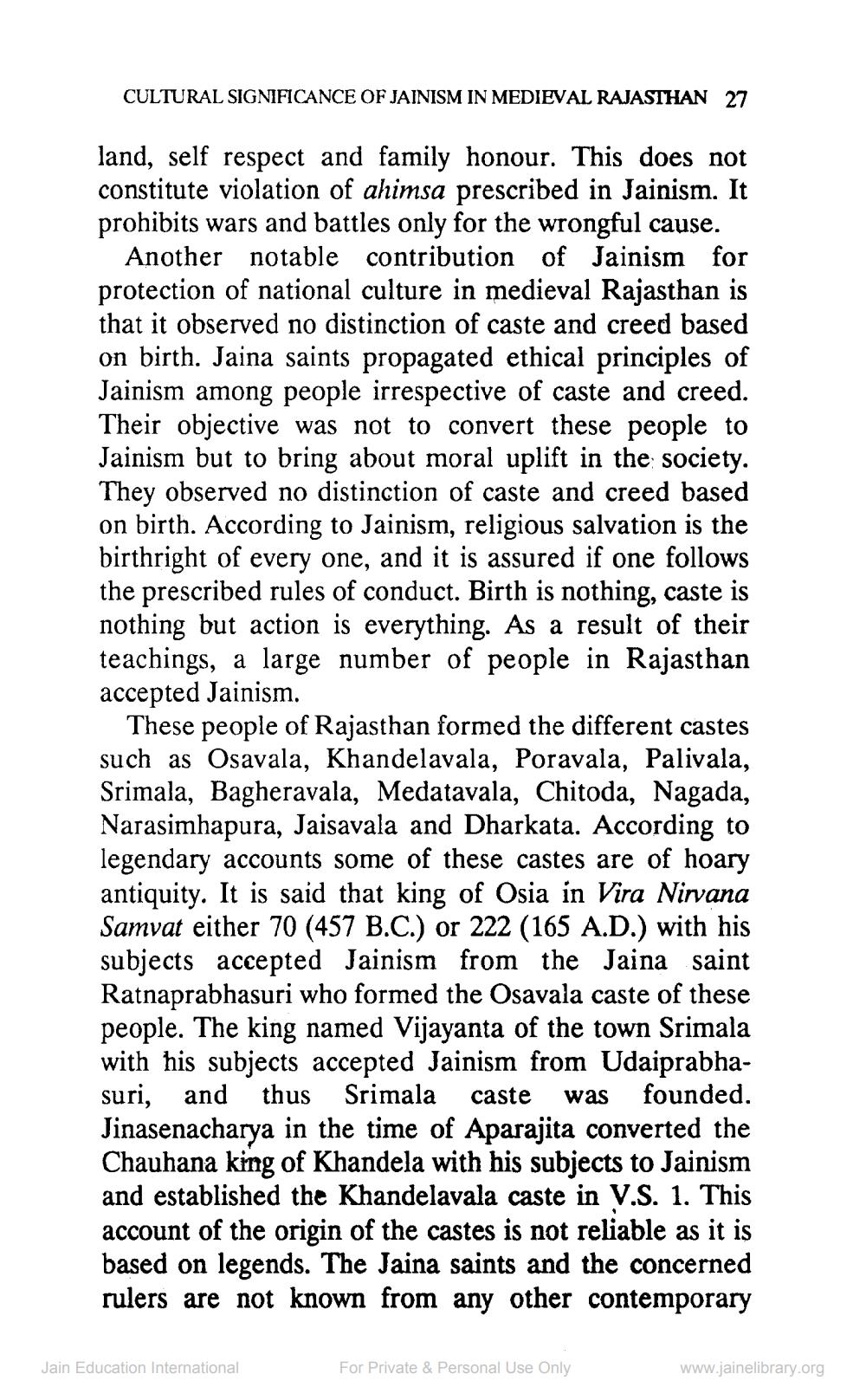________________
CULTURAL SIGNIFICANCE OF JAINISM IN MEDIEVAL RAJASTHAN 27
land, self respect and family honour. This does not constitute violation of ahimsa prescribed in Jainism. It prohibits wars and battles only for the wrongful cause.
Another notable contribution of Jainism for protection of national culture in medieval Rajasthan is that it observed no distinction of caste and creed based on birth. Jaina saints propagated ethical principles of Jainism among people irrespective of caste and creed. Their objective was not to convert these people to Jainism but to bring about moral uplift in the society. They observed no distinction of caste and creed based on birth. According to Jainism, religious salvation is the birthright of every one, and it is assured if one follows the prescribed rules of conduct. Birth is nothing, caste is nothing but action is everything. As a result of their teachings, a large number of people in Rajasthan accepted Jainism.
These people of Rajasthan formed the different castes such as Osavala, Khandelavala, Poravala, Palivala, Srimala, Bagheravala, Medatavala, Chitoda, Nagada, Narasimhapura, Jaisavala and Dharkata. According to legendary accounts some of these castes are of hoary antiquity. It is said that king of Osia in Vira Nirvana Samvat either 70 (457 B.C.) or 222 (165 A.D.) with his subjects accepted Jainism from the Jaina saint Ratnaprabhasuri who formed the Osavala caste of these people. The king named Vijayanta of the town Srimala with his subjects accepted Jainism from Udaiprabhasuri, and thus Srimala caste was founded. Jinasenacharya in the time of Aparajita converted the Chauhana king of Khandela with his subjects to Jainism and established the Khandelavala caste in V.S. 1. This account of the origin of the castes is not reliable as it is based on legends. The Jaina saints and the concerned rulers are not known from any other contemporary
Jain Education International
For Private & Personal Use Only
www.jainelibrary.org




